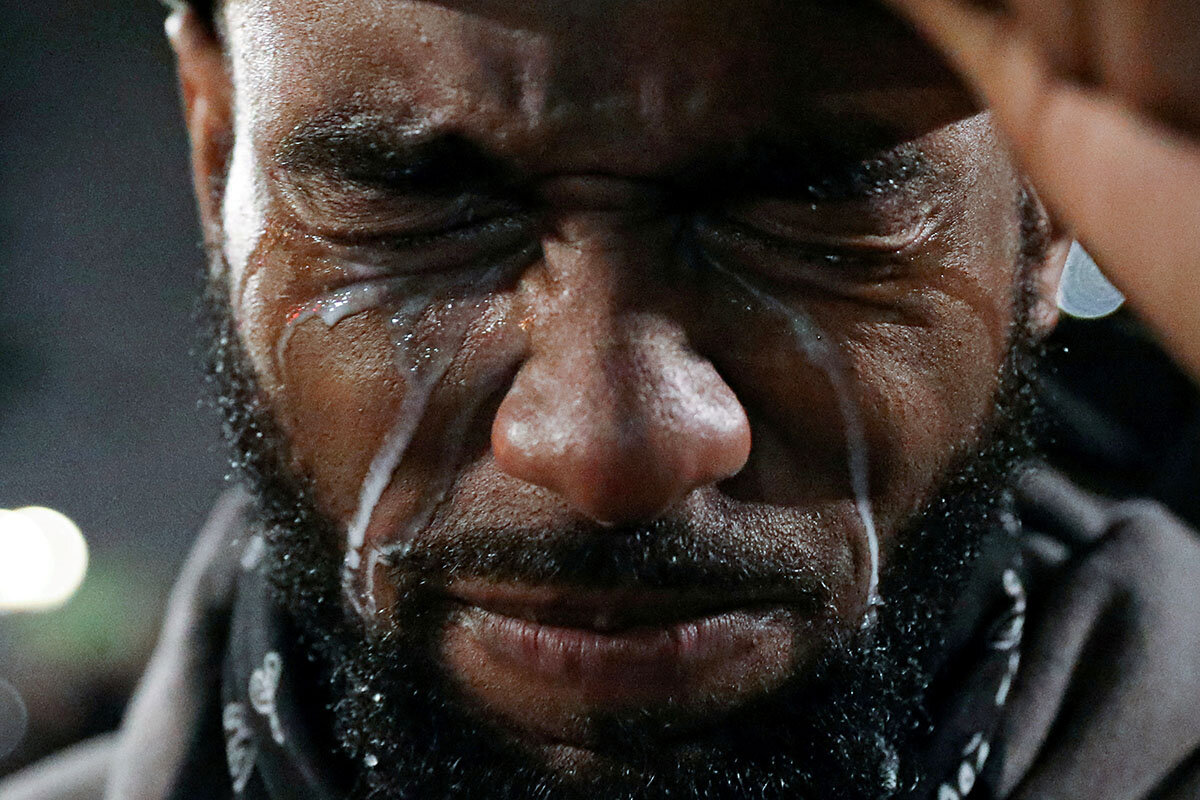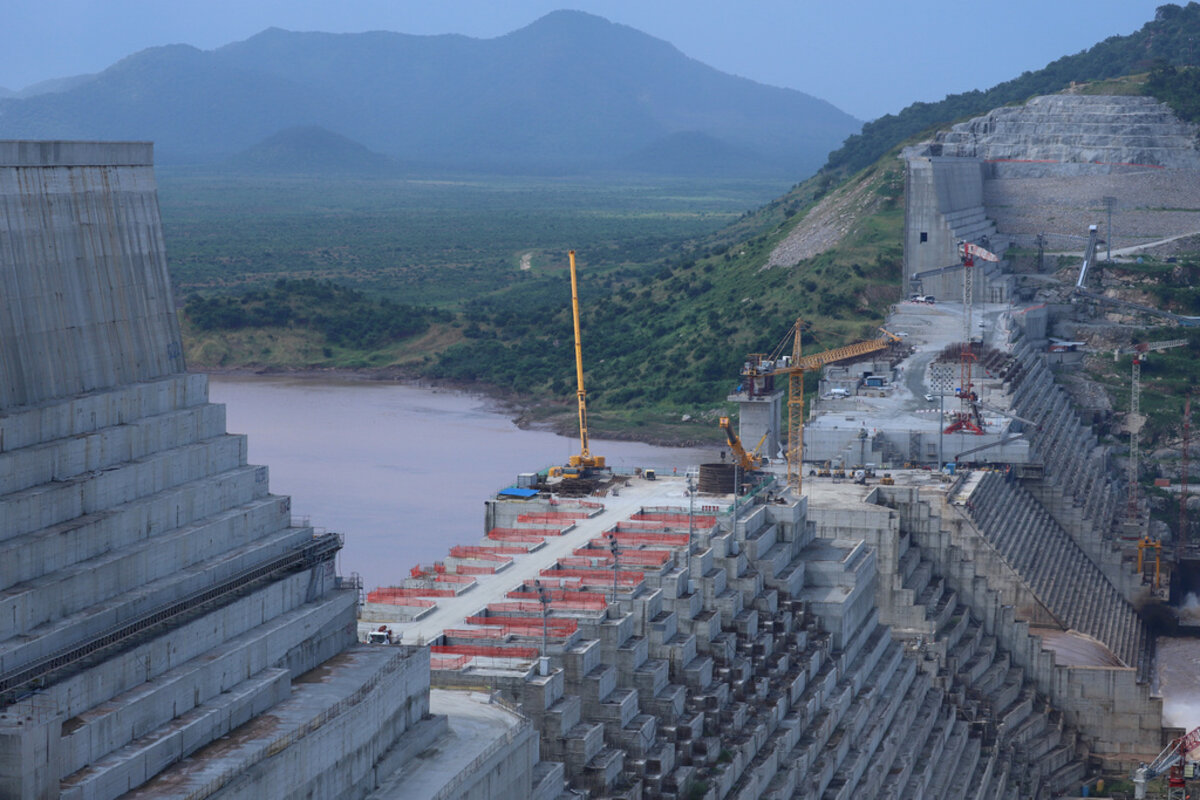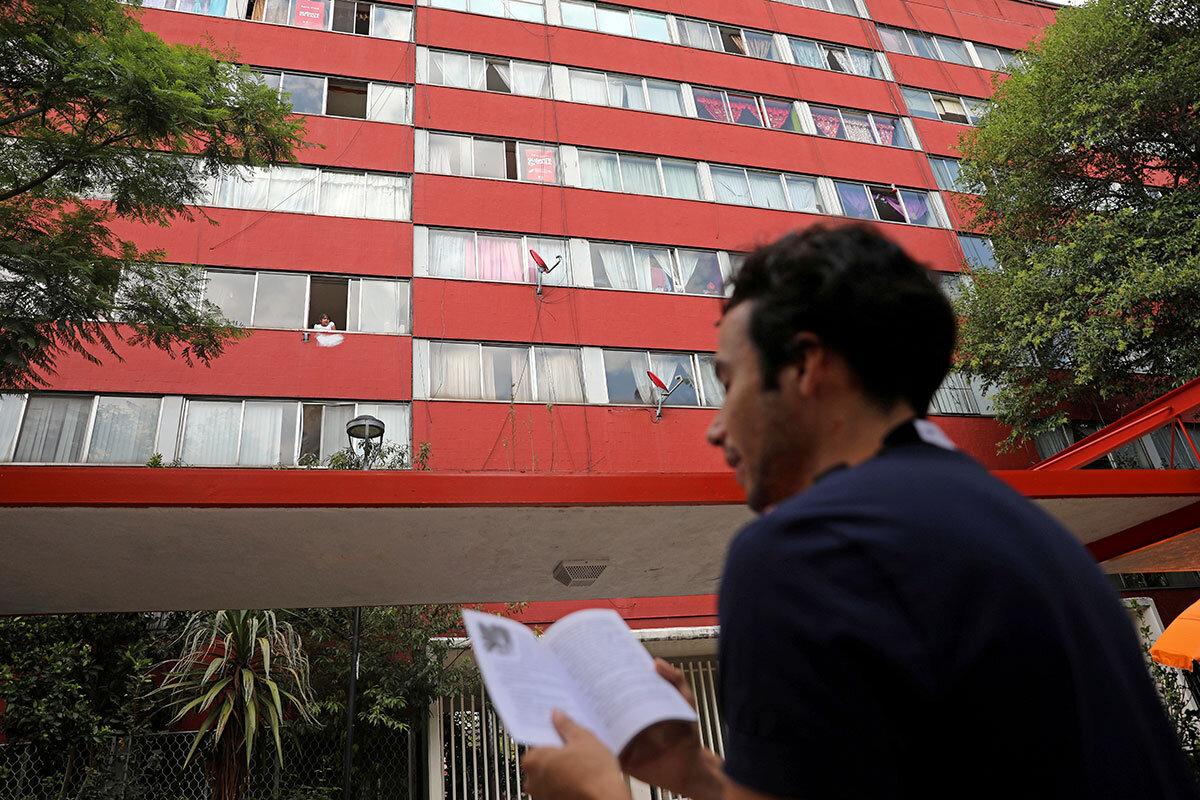Africa’s ability to resolve its internal disputes took a big step this week. Egypt and Sudan agreed to continue seeking an accord with Ethiopia over its new hydropower dam on the Blue Nile River – a vital water source for all three.
Merely agreeing to more talks might not seem like progress. Yet with Egypt making threats against its upstream neighbor, leaders of the 53-nation African Union stepped in as mediators and skillfully relieved the tension. Preventing conflicts on the continent has become the AU’s prime focus.
The dam is the largest hydropower project in Africa. Ethiopia began filling its reservoir in mid-July to capture runoff during the rainy season despite a breakdown of negotiations a week earlier. Within days Sudan and Egypt reported lower flow levels in the Nile, a potential problem for agricultural irrigation and other water needs.
Resolving the dispute could set a model for Africa in how to share its abundant natural resources. Both climate change and population growth are straining the environment. Africans need a shift in perspective away from a fear of scarcity and toward a wise and cooperative approach to land and water supplies.
“Cooperation is not a zero-sum game,” said Rosemary DiCarlo, United Nations under-secretary-general for political and peace-building affairs, after a round of talks among the three nations earlier this year. “It is the key to a successful collective effort to reduce poverty and increase growth, thus delivering on the development potential of the region.”
Ethiopia announced plans to build the Grand Ethiopian Renaissance Dam in 2011, just as pro-democracy protests gripped Egypt and as Sudan was breaking apart after decades of civil war. Since then, negotiators from all three countries managed in fits and starts to resolve most of their differences. The key unresolved issues include a legal framework for settling disputes, a water-sharing agreement during prolonged droughts, and the schedule for filling the dam, which could take up to seven years.
Ethiopia says that when it is finished and filled, the dam will produce enough electricity to accelerate economic growth within and across its borders. Sudan and Egypt, however, claim there are too many uncertainties. Any agreement would depend on stability in Ethiopia, where ethnic tensions run high. In addition, northeast Africa is subject to severe droughts, political fragmentation, and increasing competition from foreign rivals such as Turkey and Saudi Arabia.
One way to set aside those fears is to look at examples of resource-sharing in Africa and elsewhere. An informal pact among Somalia, Ethiopia, Kenya, and Uganda, for example, allows domestic animals to graze across borders. This has eased tensions and hardship in herding communities.
Despite the threats and the breakdowns in the dialogue over the dam, Egyptian Foreign Minister Sameh Shoukry nonetheless acknowledged “the undeniable truth of our commonality and camaraderie” earlier this year. He recognized the dam as an opportunity to “chart a new course of peace and prosperity for our peoples.”
That may have been an acknowledgment that Ethiopia’s dam, now mostly built and holding back water, is an undeniable reality. The courage on all sides to embrace cooperation, combined with more efficient use of their waters, could turn resource-sharing into a lasting framework for peace.
 Mark Sappenfield
Mark Sappenfield









